|
imran
|
 |
« on: November 18, 2015, 02:36:10 AM » |
|
The ambitious Albert Einstein challenges centuries of scientific thought with his new controversial idea, the General Theory of Relativity.
Albert Einstein was born in Ulm, Germany on March 14, 1879. Beginning with a flurry of papers in 1905, he turned classical physics on its head with his special and general theories of relativity, which revolutionized scientists’ understanding of everything from space and time to gravity and energy. Einstein’s groundbreaking scientific ideas made his name a synonym for genius, but he was also famous for his pacifist views and support of the civil rights movement. Below, explore nine surprising facts about one of the towering minds of the 20th century.
Einstein didn’t fail math as a child.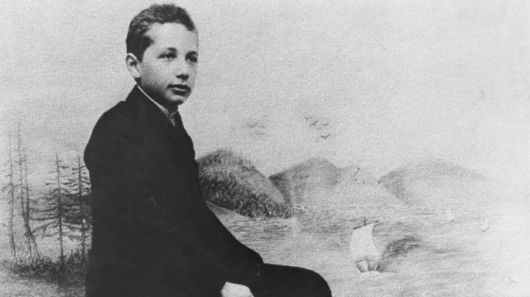 Albert Einstein at age 14. (Credit: ullstein bild/ullstein bild via Getty Images) Albert Einstein at age 14. (Credit: ullstein bild/ullstein bild via Getty Images)
Underachieving school kids have long taken solace in the claim that Einstein flunked math as a youth, but the records show that he was actually an exceptional, if not reluctant, student. He scored high grades during his school days in Munich, and was only frustrated by what he described as the “mechanical discipline” demanded by his teachers. The future Nobel Laureate dropped out of school at age 15 and left Germany to avoid state-mandated military service, but before then he was consistently at the top of his class and was even considered something of a prodigy for his grasp of complex mathematical and scientific concepts. When later presented with a news article claiming he’d failed grade-school math, Einstein dismissed the story as a myth and said, “Before I was 15 I had mastered differential and integral calculus.”
|
|
|
|
|
|
imran
|
 |
« Reply #1 on: November 18, 2015, 02:38:43 AM » |
|
No one knows what happened to his first daughter.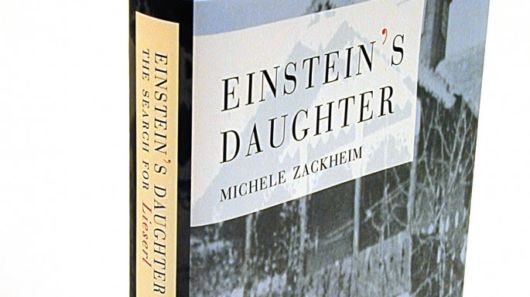 Book cover for “Einstein’s Daughter: The Search for Lieserl” by Michele Zackheim. (Credit: Urbano Delvalle/The LIFE Images Collection/Getty Images) Book cover for “Einstein’s Daughter: The Search for Lieserl” by Michele Zackheim. (Credit: Urbano Delvalle/The LIFE Images Collection/Getty Images)
In 1896, Einstein renounced his German citizenship and enrolled at the Swiss Federal Polytechnic School in Zurich. There, he began a passionate love affair with Mileva Maric, a fellow physicist-in-training originally from Serbia. The couple later married and had two sons after graduating, but a year before they tied the knot, Maric gave birth to an illegitimate daughter named Lieserl. Einstein never spoke about the child to his family, and biographers weren’t even aware of her existence until examining his private papers in the late-1980s. Her fate remains a mystery to this day. Some scholars think Lieserl died from scarlet fever in 1903, while others believe she survived the sickness and was given up for adoption in Maric’s native Serbia.
|
|
|
|
|
|
imran
|
 |
« Reply #2 on: November 18, 2015, 02:39:38 AM » |
|
It took Einstein nine years to get a job in academia.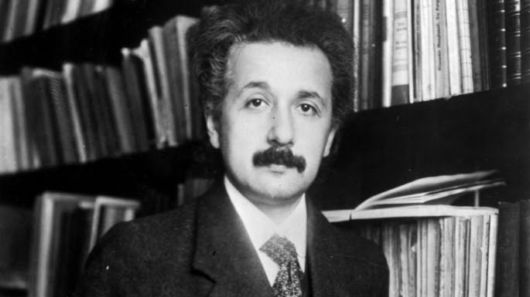 Einstein in 1905. (Credit: Topical Press Agency/Getty Images) Einstein in 1905. (Credit: Topical Press Agency/Getty Images)
Einstein showed flashes of brilliance during his years at the Zurich Polytechnic, but his rebellious personality and penchant for skipping classes saw his professors give him less than glowing recommendations upon his graduation in 1900. The young physicist later spent two years searching for an academic position before settling for a gig at the Swiss patent office in Bern. Though menial, the job turned out to be a perfect fit for Einstein, who found he could breeze through his office duties in a few hours and spend the rest of the day writing and conducting research. In 1905—often called his “miracle year”—the lowly clerk published four revolutionary articles that introduced his famous equation E=mc2 and the theory of special relativity. While the discoveries marked Einstein’s entrance onto the physics world stage, he didn’t win a full professorship until 1909—nearly a decade after he had left school.
|
|
|
|
|
|
imran
|
 |
« Reply #3 on: November 18, 2015, 02:40:09 AM » |
|
He offered his wife his Nobel Prize as part of their divorce settlement.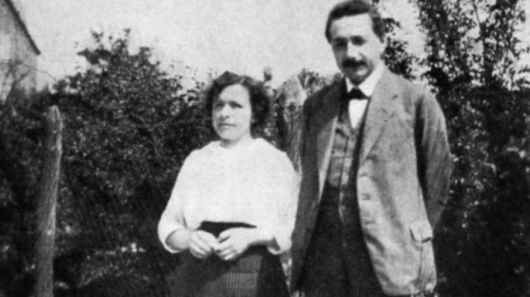
Einstein with his first wife Mileva Maric c.1905 (Credit: Ann Ronan Pictures/Print Collector/Getty Images)
After his marriage to Mileva Maric hit the rocks in the early 1910s, Einstein left his family, moved to Berlin and started a new relationship with his cousin, Elsa. He and Maric finally divorced several years later in 1919. As part of their separation agreement, Einstein promised her an annual stipend plus whatever money he might receive from the Nobel Prize—which he was supremely confident he would eventually win. Maric agreed, and Einstein later handed over a small fortune upon receiving the award in 1922 for his work on the photoelectric effect. By then, he had already remarried to Elsa, who remained his wife until her death in 1936.
|
|
|
|
|
|
imran
|
 |
« Reply #4 on: November 18, 2015, 02:40:35 AM » |
|
A solar eclipse helped make Einstein world famous. Photograph of the May 1919 solar eclipse captured by Arthur Eddington, which proved Einstein’s theory of general relativity. (Credit: SSPL/Getty Images) Photograph of the May 1919 solar eclipse captured by Arthur Eddington, which proved Einstein’s theory of general relativity. (Credit: SSPL/Getty Images)
In 1915, Einstein published his theory of general relativity, which stated that gravitational fields cause distortions in the fabric of space and time. Because it was such a bold rewriting of the laws of physics, the theory remained controversial until May 1919, when a total solar eclipse provided the proper conditions to test its claim that a supermassive object—in this case the sun—would cause a measurable curve in the starlight passing by it. Hoping to prove Einstein’s theory once and for all, English astronomer Arthur Eddington journeyed to the coast of West Africa and photographed the eclipse. Upon analyzing the pictures, he confirmed that the sun’s gravity had deflected the light by roughly 1.7 arc-seconds—exactly as predicted by general relativity. The news made Einstein an overnight celebrity. Newspapers hailed him as the heir to Sir Isaac Newton, and he went on to travel the world lecturing on his theories about the cosmos. According to Einstein biographer Walter Isaacson, in the six years after the 1919 eclipse, more than 600 books and articles were written about the theory of relativity.
|
|
|
|
|
|
imran
|
 |
« Reply #5 on: November 18, 2015, 02:41:07 AM » |
|
The FBI spied on him for decades.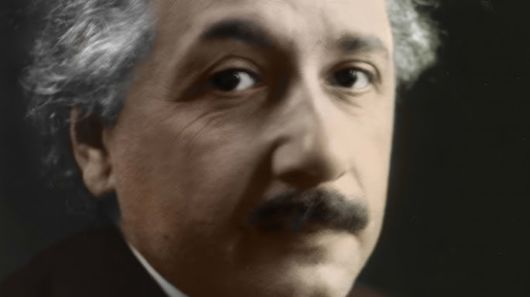 Credit: Roger Viollet/Getty Images Credit: Roger Viollet/Getty Images
Shortly before Hitler rose to power in 1933, Einstein left Berlin for the United States and took a position at the Institute for Advanced Study in Princeton, New Jersey. His support for pacifist, civil rights and left-wing causes had already drawn suspicion from J. Edgar Hoover’s FBI, and after his arrival on American shores, the Bureau launched what would eventually become a 22-year surveillance campaign. Agents listened to the physicist’s phone calls, opened his mail and rooted through his trash in the hope of unmasking him as a subversive or a Soviet spy. They even investigated tips that he was building a death ray. The project came up empty handed, but by the time Einstein died in 1955, his FBI file totaled a whopping 1,800 pages.Go to The NEXT Page for More Pictures >>>
|
|
|
|
|
|
 INFORMATION CLUB
INFORMATION CLUB Informative Zone
Informative Zone Places
Places 9 Things You May Not Know About Albert Einstein
9 Things You May Not Know About Albert Einstein INFORMATION CLUB
INFORMATION CLUB Informative Zone
Informative Zone Places
Places 9 Things You May Not Know About Albert Einstein
9 Things You May Not Know About Albert Einstein
